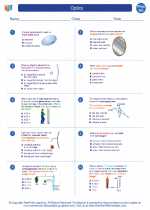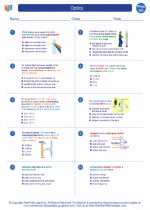Solid
A solid is one of the four fundamental states of matter. Solids have a definite shape and volume, and the particles are closely packed together in a regular arrangement. The arrangement of particles in a solid allows for only vibrational motion, which means that solids maintain their shape and volume unless acted upon by an external force.
Characteristics of Solids
- Definite Shape: Unlike liquids and gases, solids have a fixed shape. The arrangement of particles in a solid is such that they maintain a specific shape.
- Definite Volume: Solids also have a fixed volume. The particles are closely packed together, allowing for minimal compression or expansion.
- Strong Intermolecular Forces: The particles in a solid are held together by strong intermolecular forces, which contribute to the rigidity of solids.
- High Density: Solids generally have a high density due to the close packing of particles.
- Low Compressibility: Due to the close arrangement of particles, solids are not easily compressed.
- Definite Melting Point: Each solid has a specific melting point at which it changes from a solid to a liquid.
Types of Solids
Solids can be classified into different types based on the arrangement of particles and the nature of intermolecular forces. The main types of solids include:
- Crystalline Solids: These solids have a regular, repeating pattern of particles. Examples include salt, sugar, and diamond.
- Amorphous Solids: The particles in amorphous solids are not arranged in a regular pattern. Examples include glass, rubber, and plastic.
- Metallic Solids: These solids consist of metal atoms held together by metallic bonds. Examples include iron, copper, and aluminum.
- Covalent Network Solids: These solids have a network of covalent bonds extending throughout the solid. Examples include diamond and quartz.
Study Guide
When studying solids, it's important to understand the following key concepts:
- How the arrangement of particles in a solid contributes to its properties.
- The differences between crystalline and amorphous solids.
- The types of intermolecular forces present in different types of solids.
- The behavior of solids at different temperatures, including melting and freezing.
- The applications of different types of solids in everyday life and industry.
Additionally, it's helpful to practice problems related to calculating the density of solids, understanding phase transitions, and identifying the properties of specific solid materials.
Understanding the concept of solids is fundamental to many areas of physics and chemistry, and it provides a basis for understanding the behavior of materials in various contexts.



